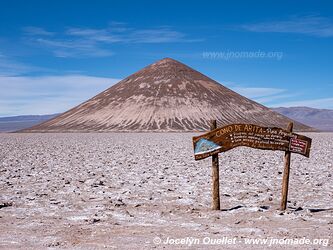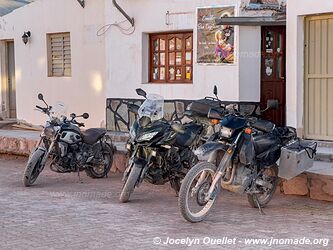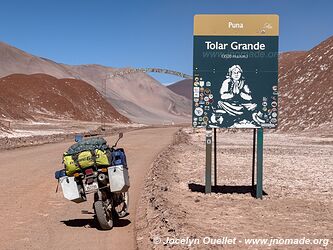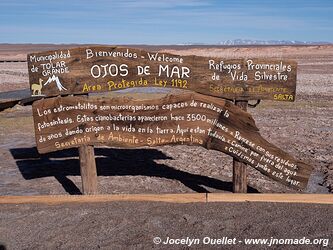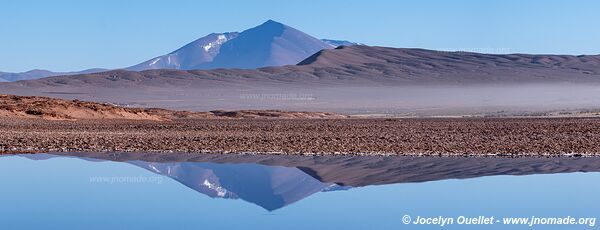Salar de Arizaro and Tolar Grande
The Salar de Arizaro is less spectacular than its neighbour, the Salar de Antofalla, but it still has a very special feature. A volcano with almost perfect symmetry (if you look at it from the right angle) can be seen in the southern part of the salar. This volcano, called Cono de Arita, is around 200 metres high with a base of 800 metres. Like all volcanoes, it began with a surge of lava that formed its cone, but lacking power, it never erupted and so never 'exploded'.
This salar and the other salars in the Argentine Puna were formed between 10 million and 5 million years ago. The salt is of volcanic origin and has nothing to do with ancient seas. The salt water is ejected by volcanoes or geysers and has evaporated over the millennia.
The Puna is an ecosystem in the Andes mountain range. These are generally plateaus at altitudes ranging from 3500 metres to almost 5000 metres where the air is rarefied and the climate is hostile. The average temperature over the course of a year varies from 6 to -7 degrees Celsius, the air is very dry and cold and there is very little rainfall annually.
Tolar Grande
Tolar Grande is a small village in the Andes in the province of Salta. The village seems to make its living from the mining industry and the occasional tourist.
This region is popular with motorbike travellers.






